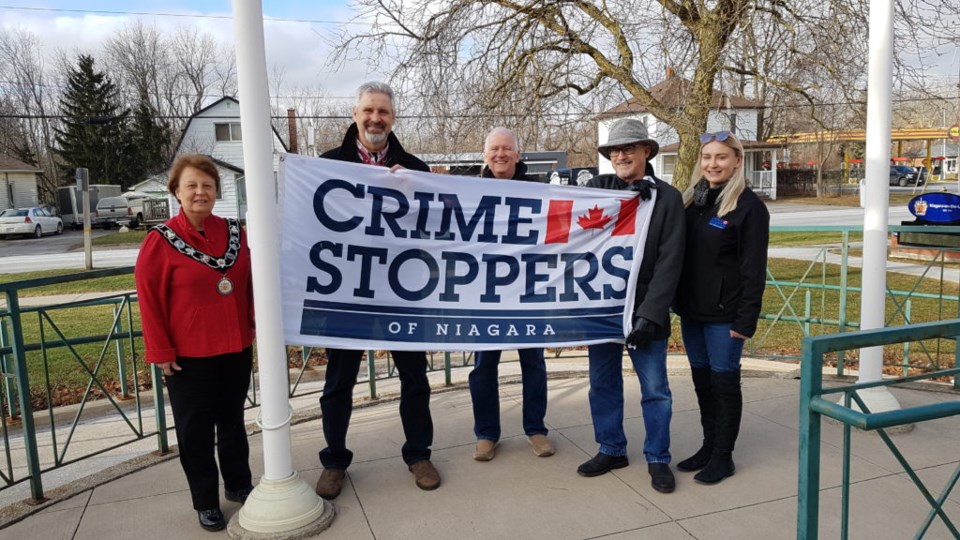
Crime Stoppers is “stepping outside its box” in taking on the prevention of elder abuse, says volunteer Ernie Sibbett, past chair of Crime Stoppers of Niagara.
With a large senior population in Niagara of 78,000, and increasing, it’s a growing problem, says Sibbett, who believes by getting involved, “we will make a difference.”
As the chair of Crime Stoppers of Niagara’s Elder Abuse Committee, he and program coordinator Sara Stevens have been making the rounds through Niagara municipalities to raise a flag for Crime Stoppers Month, and are taking the opportunity to talk about a new study launched this month to map elder abuse reporting, including how data is collected and the eventual outcomes.
The agency has been given a $53,500 grant from the Ontario Trillium Foundation to fund a one-year study. The concern is that elder abuse is under-reported, and by streamlining services, and offering a more coordinated response, the community can do a better job of keeping seniors safe.
This is something Crime Stoppers has been talking about for some time, says Stevens, but the program is just being rolled out now, and they are grateful to be given the opportunity to protect the elder community.
“Our bread and butter is solving crimes, but if we can help to prevent them, all the better.”
According to a provincial study going back to 2009, four to 10 per cent of seniors in Ontario reported some form of elder abuse, but it is known to be underreported, due to fear, isolation, dependency and shame.
With Crime Stoppers’ Tips, callers are guaranteed anonymity and those tips are shared with the police for investigation. The end goal of this study is to make it easier to report abuse.
In addition to uncertainty about how to report elder abuse, there is also some confusion about what it is.
As defined by the World Health Organization, elder abuse is any action, or deliberate inaction, by a person in position of trust which causes harm to an older person. The abuser can be a spouse, child, family member, friend or caregiver.
Abuse can be physical or emotional; it can be active or passive neglect, purposely withholding care or failing to provide basic care due to lack of knowledge or ability: it can be sexual, or financial.
Signs of abuse include unexplained injuries; unusual legal activity related to wills or other documents; unnecessary purchases to home or property; unexplained withdrawals from bank accounts, or personal bank statements and credit cards missing; lack of food, clothing or other necessities; poor hygiene; unexplained weight loss; or depression, anxiety and fear.
If you or someone you know is in danger, call 911.
Agencies to call to report elder abuse:
Niagara Regional Police: 905-688-4111
Senior Support Alzheimer Society of Niagara Region: 905-687-3914
Home and Community Care: 905-684-9441
Niagara Gatekeeper
Program: 905-684-0968
Seniors’ Community Programs, Niagara Region: 905-984-6900